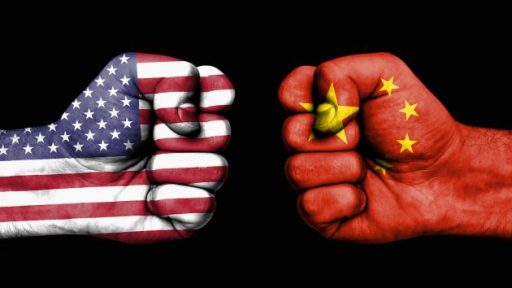- Home
- >
- Daily Accents
- >
- China has a limited number of weapons to use in a trade war with the US

China has a limited number of weapons to use in a trade war with the US

As China and the U.S. near a trade war, both nations bring different weapons to the table. For the U.S., it's direct tariffs on the plethora of goods it imports, while for China the calculus is a little different.
China is limited somewhat in the amount of retaliatory tariffs it can apply, simply because it doesn't import nearly as much in American goods compared with what the U.S. takes of Chinese products. China imported just $129.9 billion from the U.S. in 2017, compared with $505.5 billion in exports, according to the Census Bureau.
"China is going to run out of direct reprisals quickly should it look to match the U.S. in tariffs," LPL Research said in a note. "There is also broad agreement globally that China engages in a range of unfair trade practices, which provides some moral high ground for the U.S. to demand concessions."
Threats continue! China has promised to respond to the United States
What China does have at its disposal is a handful of other measures that, while not as likely to be implemented as simple tariffs, remain potentially harmful.
Markets are clearly nervous about the possibility of an escalation. The Dow industrials took a big tumble in market action Tuesday while government bond yields and commodity prices also mostly moved sharply lower.
Describing the environment, Craig Erlam, senior market analyst at forex brokerage Oanda, noted that while China "doesn't want a trade war, it's not afraid to engage in one" and thus "it's difficult to see how and when this ends."
In figuring out how it ends, markets will be watching where it's going.
While the White House has been clear about where it could go — $50 billion of tariffs already announced plus another $200 billion that President Donald Trump threatened this week — China has been a little less direct. Chinese officials have threatened tit-for-tat tariffs, but eventually could run out of items to target.
"In our view, the most likely outcome is that China responds in kind by introducing tariffs or other import restrictions on US goods or services. This could be calibrated to be proportional in response to the US action," Goldman Sachs economists Alec Phillips and Andrew Tilton said in a research note earlier this year on the potential implications of a U.S.-China trade war.
The Goldman analysis set out an additional menu of options outside simple tariffs that China could employ.
They include action against U.S. companies operating in China such as boycotts against Apple or Google parent Alphabet, currency devaluation, selling U.S. assets, Treasurys in particular, and changes on geopolitical issues, such as easing sanctions on North Korea.
Each poses certain obstacles — action against U.S. companies could run afoul of World Trade Organization rules, currency devaluation would counteract ambitious measures the government has taken to stabilize the yuan, and selling U.S. bonds or easing North Korean sanctions might not have much impact dollar-wise.
Indeed, on the latter points China has cut its Treasurys holdings 10.2 percent since the peak in late 2013 but still is the global leader with $1.18 trillion on the books. Should China or others around the world continue to reduce their purchases of government debt, the U.S. is hoping that pension funds, insurance companies and private investors step into the void.
One potential strategy, then, for the administration is to simply wear China down in a "trade war of attrition," as Peter Boockvar, chief investment officer at Bleakley Advisory Group, put it.
The U.S. faces its own risks in such a scenario. Should the administration implement the full $250 billion it threatened, that would be a tax on nearly half the $505 billion in goods the U.S. imported from China in 2017, according to Beacon Policy Advisors.
"We continue to have strong conviction that Trump's second round of tariffs is all bark and no bite," Beacon said in its daily report.
Source: CNBC
 Trader Aleksandar Kumanov
Trader Aleksandar Kumanov Read more:
If you think, we can improve that section,
please comment. Your oppinion is imortant for us.











